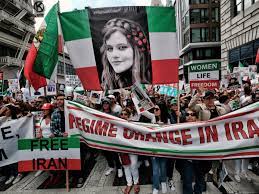
Following the protests and radical action taken in response to 22-year-old Mahsa Amini’s death, Iranian authorities are now reviewing the decades long “hijab law”. The law, established in April 1983, four years after the Islamic Revolution mandated all women, including non-Muslims and foreigners to cover their heads and “dress respectfully”. The mandatory hijab law has seen a society declining in mental and social health through a study conducted by the Scientific Association of Psychiatrists. By taking away women’s freedom and individuality, the government is promoting censorship and segregation.
However, beyond the discrimination perpetuated by the law lies the legal issue – what constitutes a “bad or improper hijabi”? Due to the unclear definition of these terms, the Islamic Religious Police (widely known as the morality police) who enforce the law have different interpretations of “right” and “wrong”. This is seen in the death of Mahsa Amini who allegedly had a heart attack as she was detained at a morality police station. She was arrested for the improper wearing of the hijab, and it is assumed tortured for failing to adhere to the law. After spending three days in a coma, she passed away. The injustice is clear throughout the case as the morality police lied about Amini’s cause of death too. The public demonstrations over her death are the biggest in the Islamic Republic since the 2019 gasoline protests and the hundreds that were killed in the police crackdowns rival that of the 1979 Islamic Revolution.
The public taking a stand against the law has resulted in rising pressure on the Iranian government and the abolishment of the morality police. This step forward is accompanied by the review of the headscarf law which is causing a fissure within the government itself. While reformists like the Union of Islamic Iran People Party call for authorities to “prepare the legal elements paving the way for the cancellation of the mandatory hijab law”, conservatists like Raisi call for mobilisation to enforce it. The call for the law to be rescinded has finally been heard and the world waits in anticipation.
If you or someone you know wish to discuss this issue further, then please do not hesitate to contact us on 02 8999 9809.
